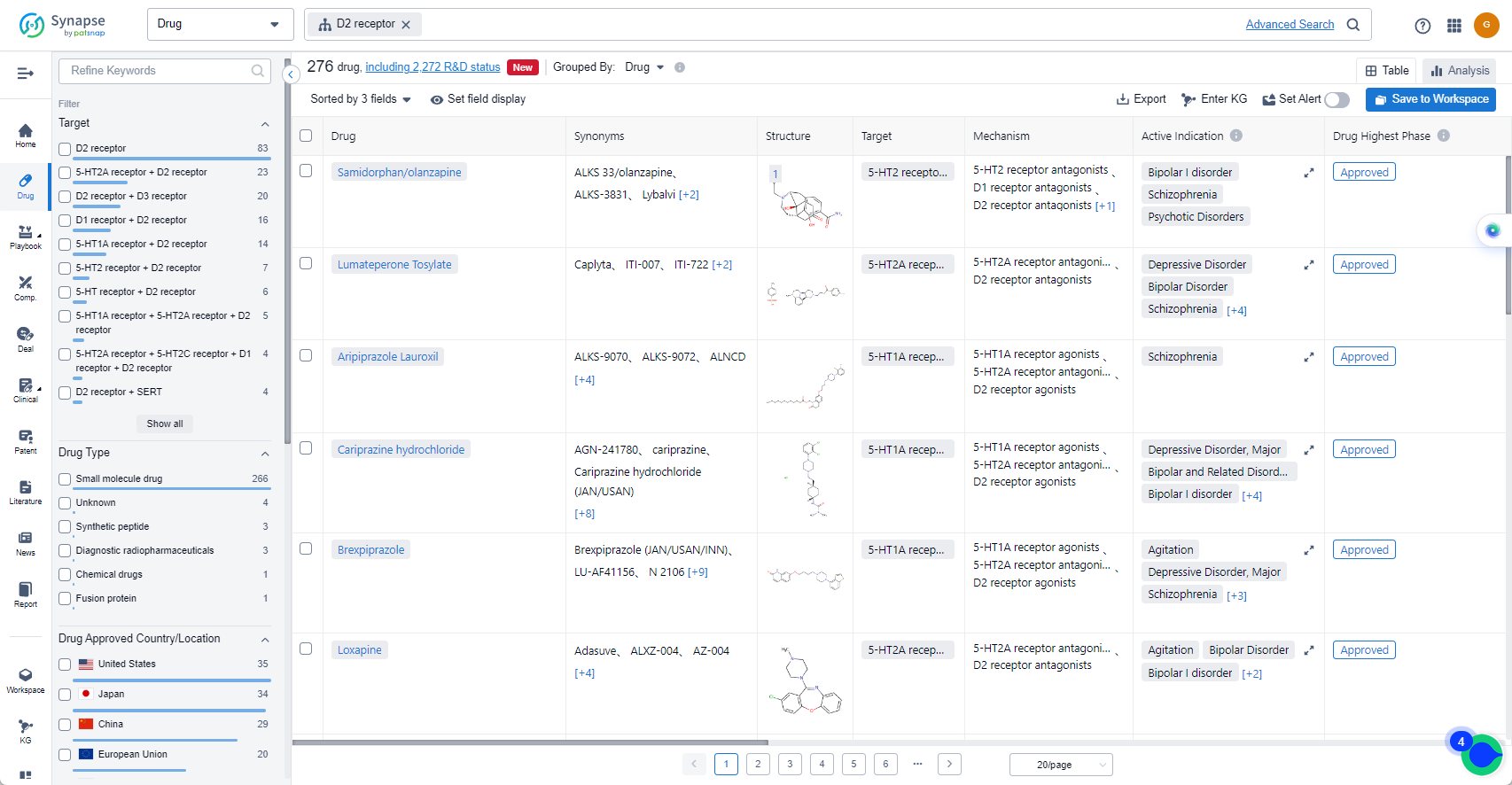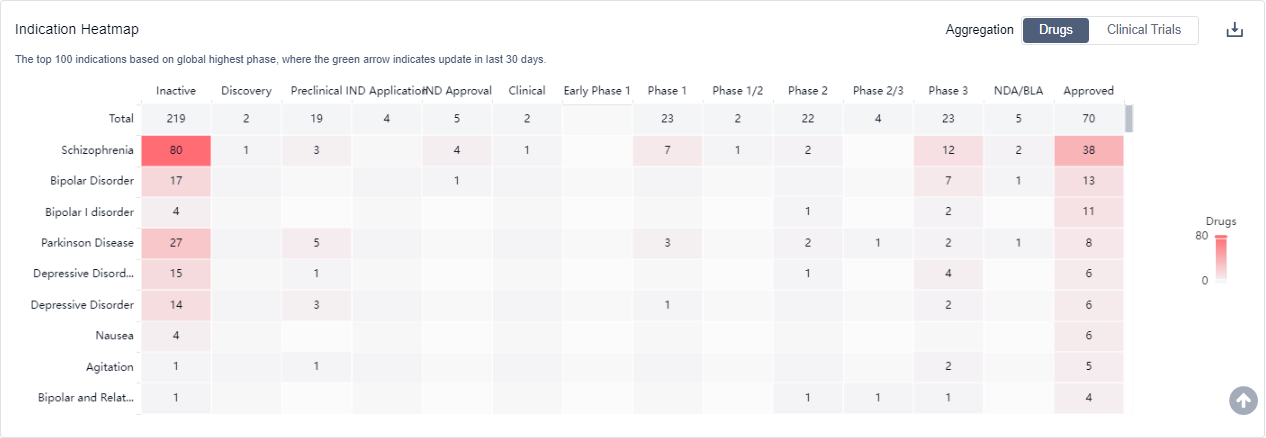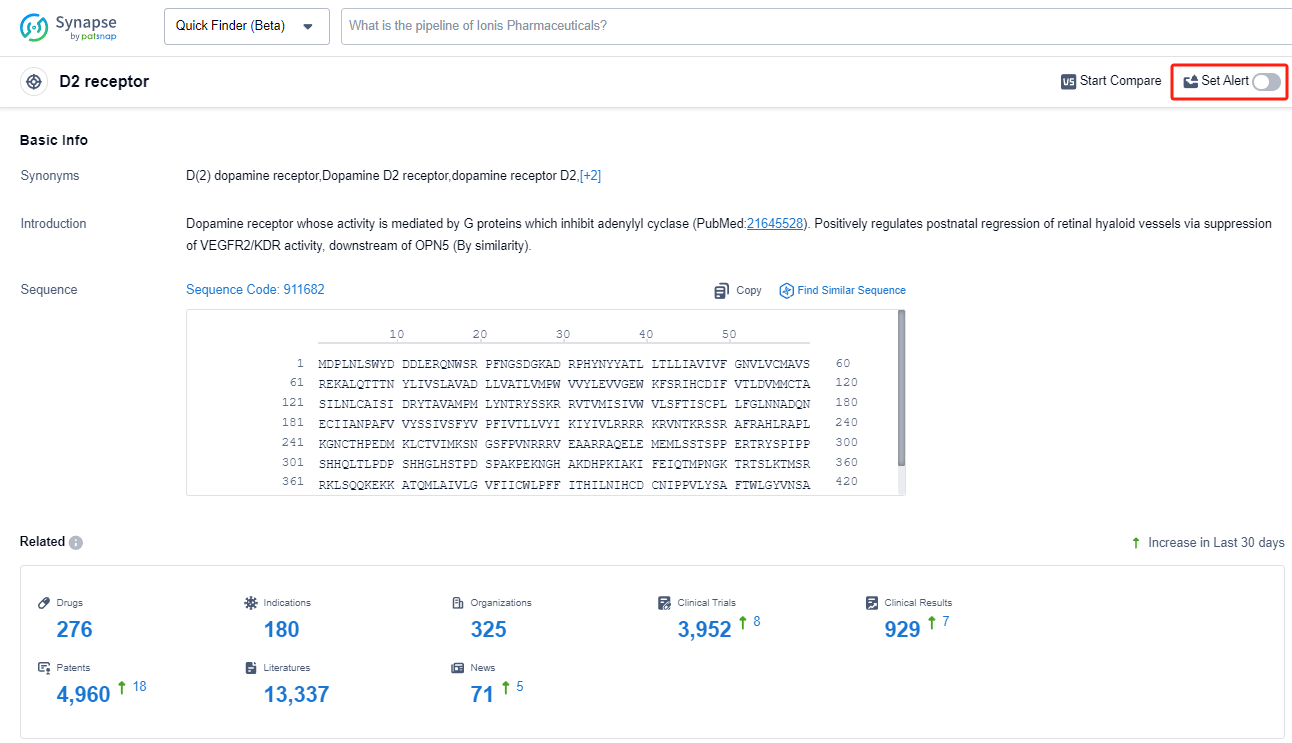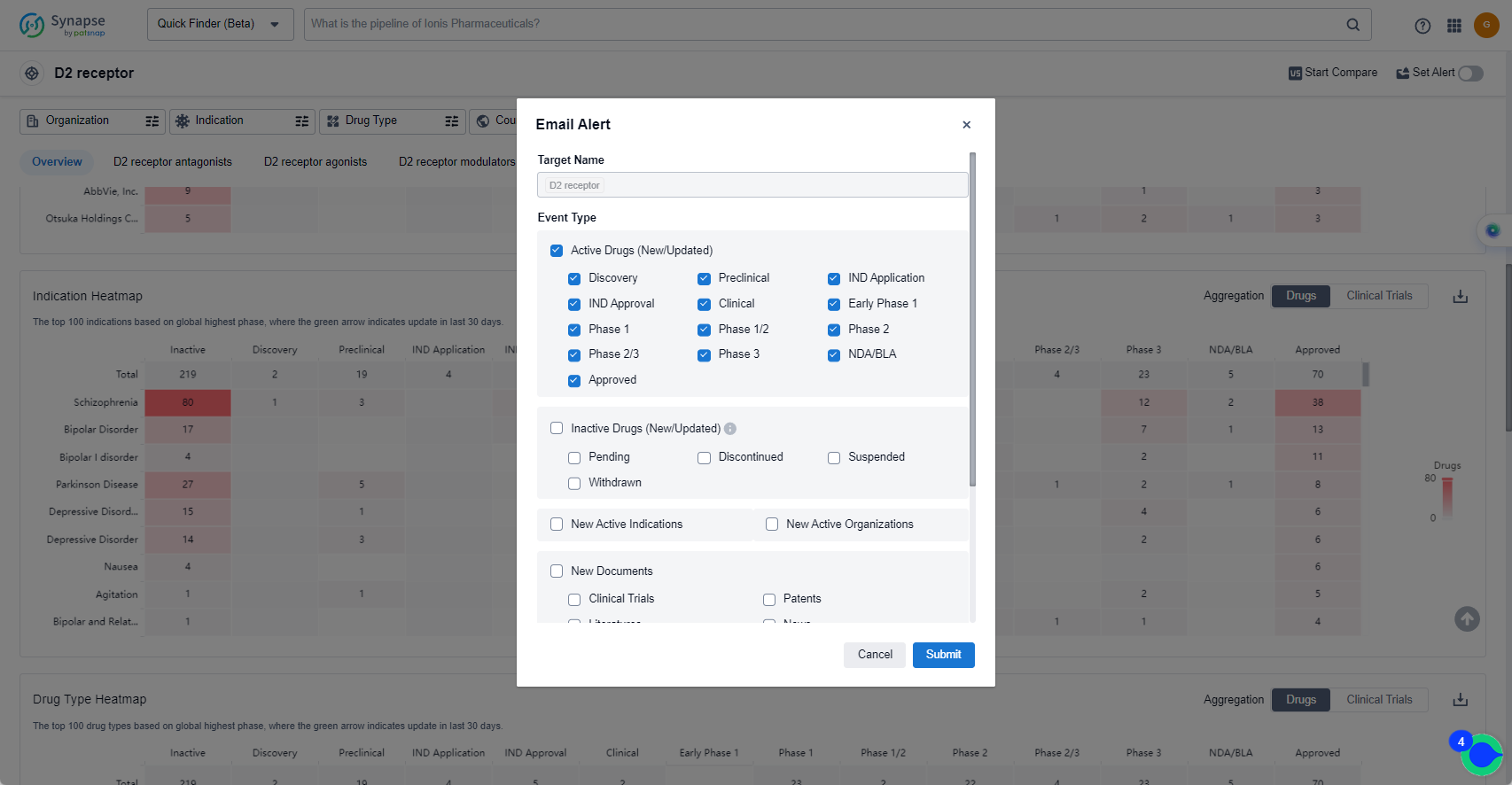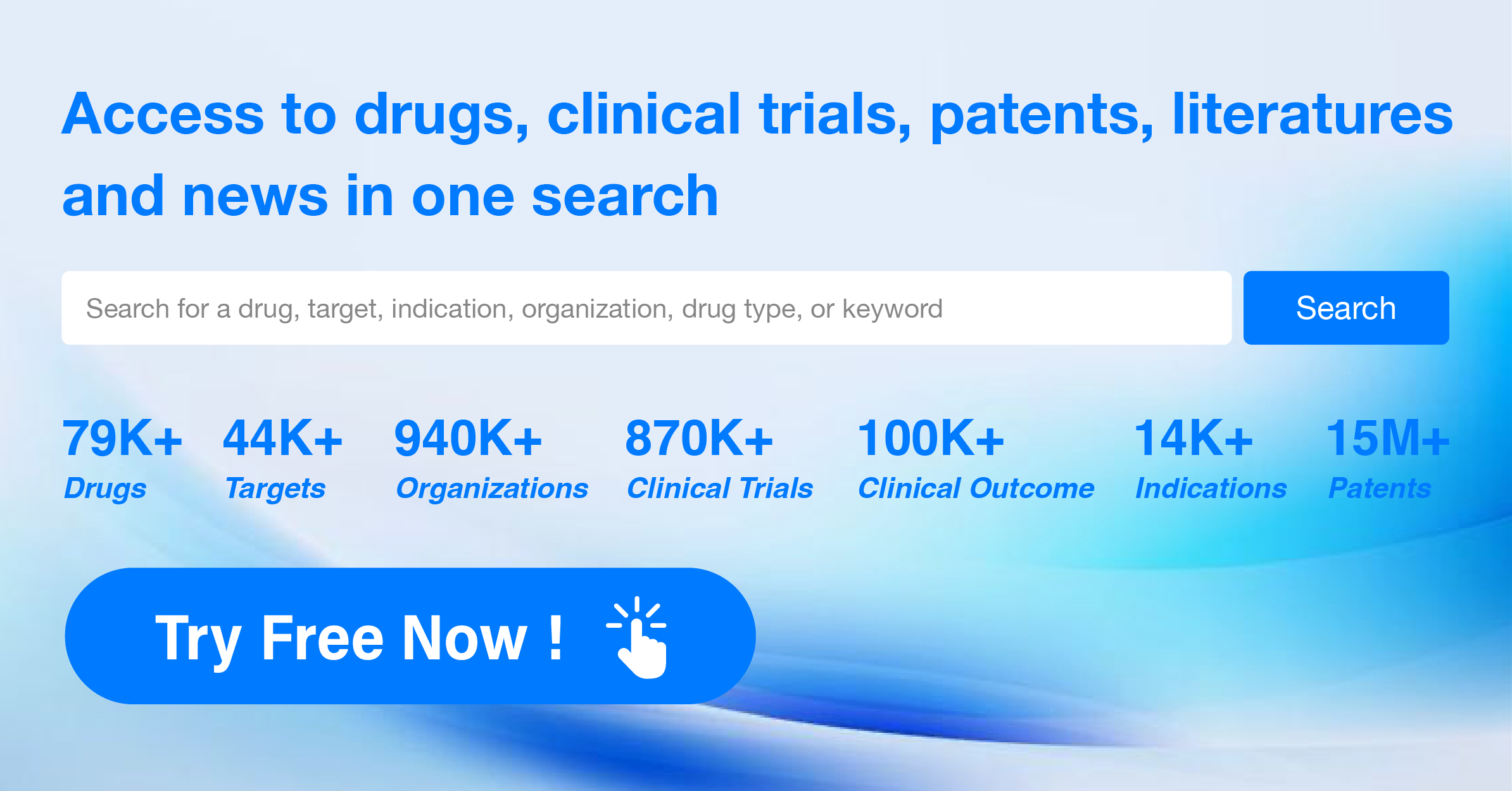D2 receptor antagonists: What They Are and How to Keep Up with the Latest Advances
The D2 receptor is a type of dopamine receptor found in the human body. It plays a crucial role in various physiological and neurological processes. As a G-protein coupled receptor, the D2 receptor is involved in the regulation of dopamine neurotransmission, which affects mood, motivation, and reward. Dysfunction of the D2 receptor has been implicated in several psychiatric disorders, including schizophrenia and addiction. Additionally, the D2 receptor is a target for antipsychotic medications, which work by blocking its activity to alleviate symptoms associated with psychosis. Understanding the role of the D2 receptor is essential for developing therapeutic interventions for psychiatric and neurological conditions.
The analysis of the target D2 receptor reveals a competitive landscape with multiple companies making progress in the development of drugs. Johnson & Johnson, Mitsubishi Chemical Group Corp., Novartis AG, Sanofi, and Viatris Inc. have shown significant growth and have drugs approved for the target. Schizophrenia, bipolar disorder, and bipolar I disorder are the most common indications for approved drugs. Small molecule drugs are progressing rapidly, with intense competition from biosimilars. The United States, Japan, and China are the leading countries in the development of drugs targeting the D2 receptor, with China showing notable progress. Overall, the target D2 receptor presents opportunities for further research and development in the pharmaceutical industry.
How do they work?
D2 receptor antagonists are a type of medication that block or inhibit the activity of the D2 receptors in the brain. D2 receptors are a subtype of dopamine receptors, which are involved in various neurological processes. By antagonizing or blocking the D2 receptors, these medications can modulate the effects of dopamine in the brain.
From a biomedical perspective, D2 receptor antagonists are commonly used in the treatment of psychiatric conditions such as schizophrenia and bipolar disorder. In these disorders, there is an imbalance of dopamine activity in the brain, and D2 receptor antagonists help to reduce the excessive dopamine signaling. By blocking the D2 receptors, these medications can help alleviate symptoms such as hallucinations, delusions, and mood disturbances.
It is important to note that D2 receptor antagonists may also have side effects due to their broader effects on dopamine signaling. These can include movement disorders, such as parkinsonism, as well as metabolic changes and hormonal imbalances. Therefore, the use of D2 receptor antagonists requires careful monitoring and consideration of the potential risks and benefits for each individual patient.
List of D2 receptor Antagonists
The currently marketed D2 receptor antagonists include:
- Samidorphan/olanzapine
- Lumateperone Tosylate
- Aripiprazole Lauroxil
- Cariprazine hydrochloride
- Brexpiprazole
- Loxapine
- DA-9701
- Lurasidone Hydrochloride
- Asenapine Maleate
- Paliperidone Palmitate
For more information, please click on the image below.
What are D2 receptor antagonists used for?
D2 receptor antagonists are commonly used in the treatment of psychiatric conditions such as schizophrenia and bipolar disorder. For more information, please click on the image below to log in and search.
How to obtain the latest development progress of D2 receptor antagonists?
In the Synapse database, you can keep abreast of the latest research and development advances of D2 receptor antagonists anywhere and anytime, daily or weekly, through the "Set Alert" function. Click on the image below to embark on a brand new journey of drug discovery!
